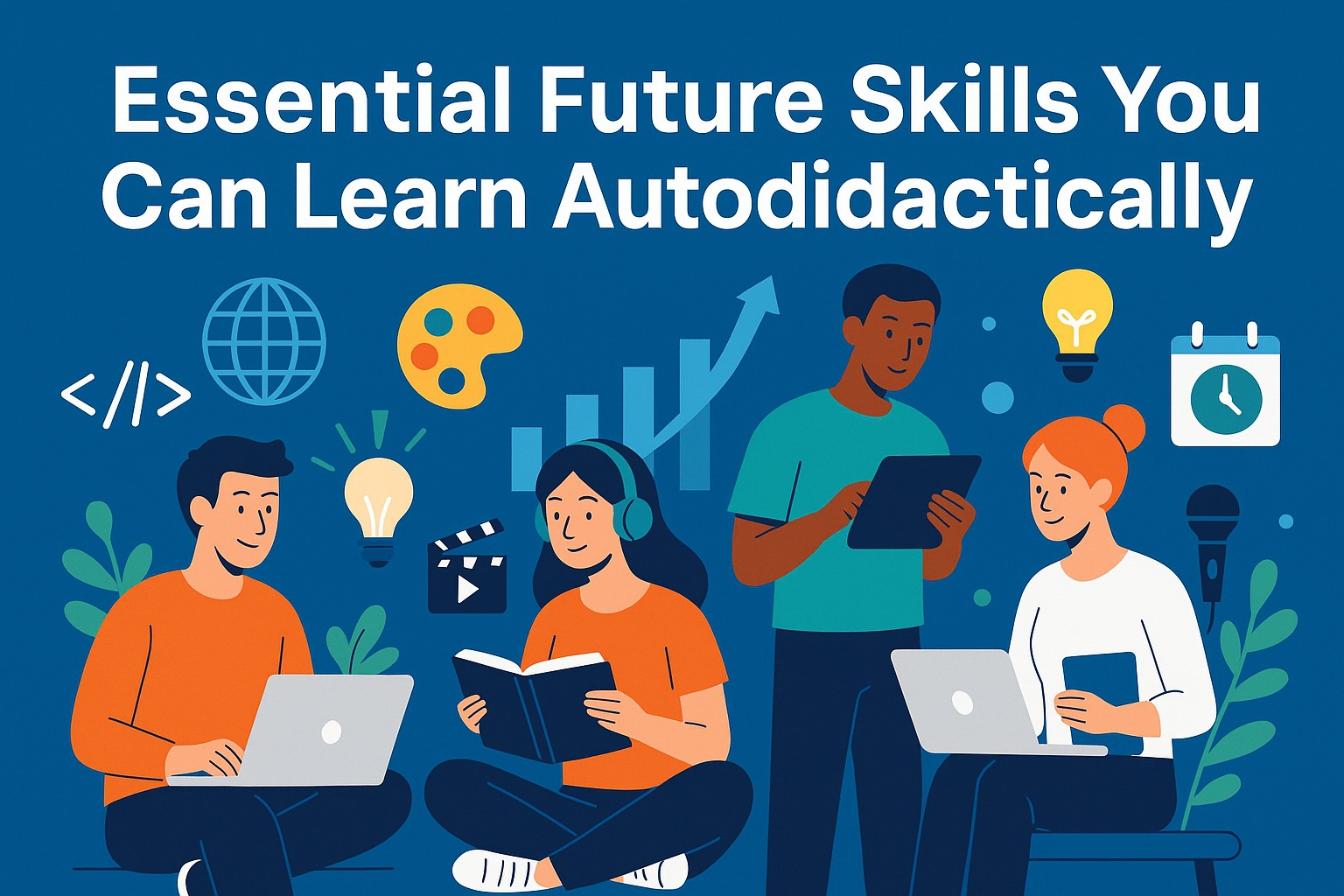
Essential Future Skills You Can Learn Autodidactically
Introduction
In a world of rapid technological advancement and ever-evolving work dynamics, the ability to learn independently has become one of the most crucial skills of the future. Many high-demand skills are now accessible without a formal education or expensive training, offering huge opportunities—especially for young people aiming to stay relevant in the 2030 job market.
This article explores the future-ready skills you can master through self-learning and how these competencies can pave the way toward a successful career.
What Is an Autodidactic Skill?
Autodidactic skills are abilities acquired through self-directed learning using resources like the internet, books, video tutorials, or hands-on experiences. This learning model allows anyone to grow their skill set without the limitations of time or place.
Why Are Autodidactic Skills Important for the Future?
Here are a few reasons why self-taught skills are more relevant than ever:
- The workforce is becoming more dynamic—companies seek quick learners and adaptable individuals.
- Job competition is rising—extra skills give you a competitive edge.
- Technology evolves rapidly—outdated skills can become irrelevant quickly.
- Learning is more flexible—you can study anytime, anywhere.
Future-Proof Skills You Can Learn Autodidactically
1. Digital Marketing
A must-have in today’s internet-driven world. Key topics include:
- SEO (Search Engine Optimization)
- Social Media Marketing
- Content Marketing
- Email Marketing
Resources: Google Digital Garage, Meta Blueprint, YouTube
2. Graphic Design
In demand for branding, social media, and promotional needs. Common tools:
- For beginners: Canva
- Advanced: Adobe Illustrator, Photoshop
Resources: Skillshare, YouTube, Coursera
3. Programming (Coding)
Technology is everywhere. Programming languages you can start with:
- HTML, CSS, JavaScript – Web development
- Python – Data science and AI
- SQL – Database management
Resources: FreeCodeCamp, Codecademy, W3Schools
4. Public Speaking & Communication
Strong communication is vital in every profession. Learn:
- How to express ideas clearly
- Engaging presentation techniques
- Managing nervousness during speech
Resources: TED Talks, Toastmasters, Online courses
5. Time Management & Productivity
Essential in all professional areas. Learn how to:
- Organize tasks and priorities
- Use digital tools for better productivity
Tools: Notion, Trello, Google Calendar
Resources: Books, podcasts, self-development videos
6. Video Editing
With video content on the rise, mastering editing is a major asset. Tools include:
- For mobile: CapCut
- Professional: Adobe Premiere Pro, DaVinci Resolve
Resources: YouTube, Udemy, creator communities
Benefits of Mastering Skills Autodidactically
- Build independence and initiative
- Improve job application success
- Launch your own business or freelance career
- Reduce reliance on formal institutions
- Unlock global job opportunities (e.g., remote work)
Free Learning Resources for Self-Learners
- YouTube – Free tutorials for all levels
- Coursera & edX – University-level courses
- Google Skillshop – Free certification programs
- LinkedIn Learning – Industry-relevant content
- Podcasts & eBooks – Flexible and on-demand
Tips to Succeed in Self-Learning
- Define your skill goals clearly.
- Set a consistent learning schedule.
- Use credible and up-to-date resources.
- Apply what you learn through practice.
- Join communities to share and grow together.
Conclusion
Many future-ready skills no longer require a college degree. With discipline and the right strategy, you can acquire valuable expertise through self-learning—and even faster than through traditional means. In the digital age, knowledge is within easy reach. The question is: Are you ready to take the first step?
 Indonesia ID
Indonesia ID  English EN
English EN
